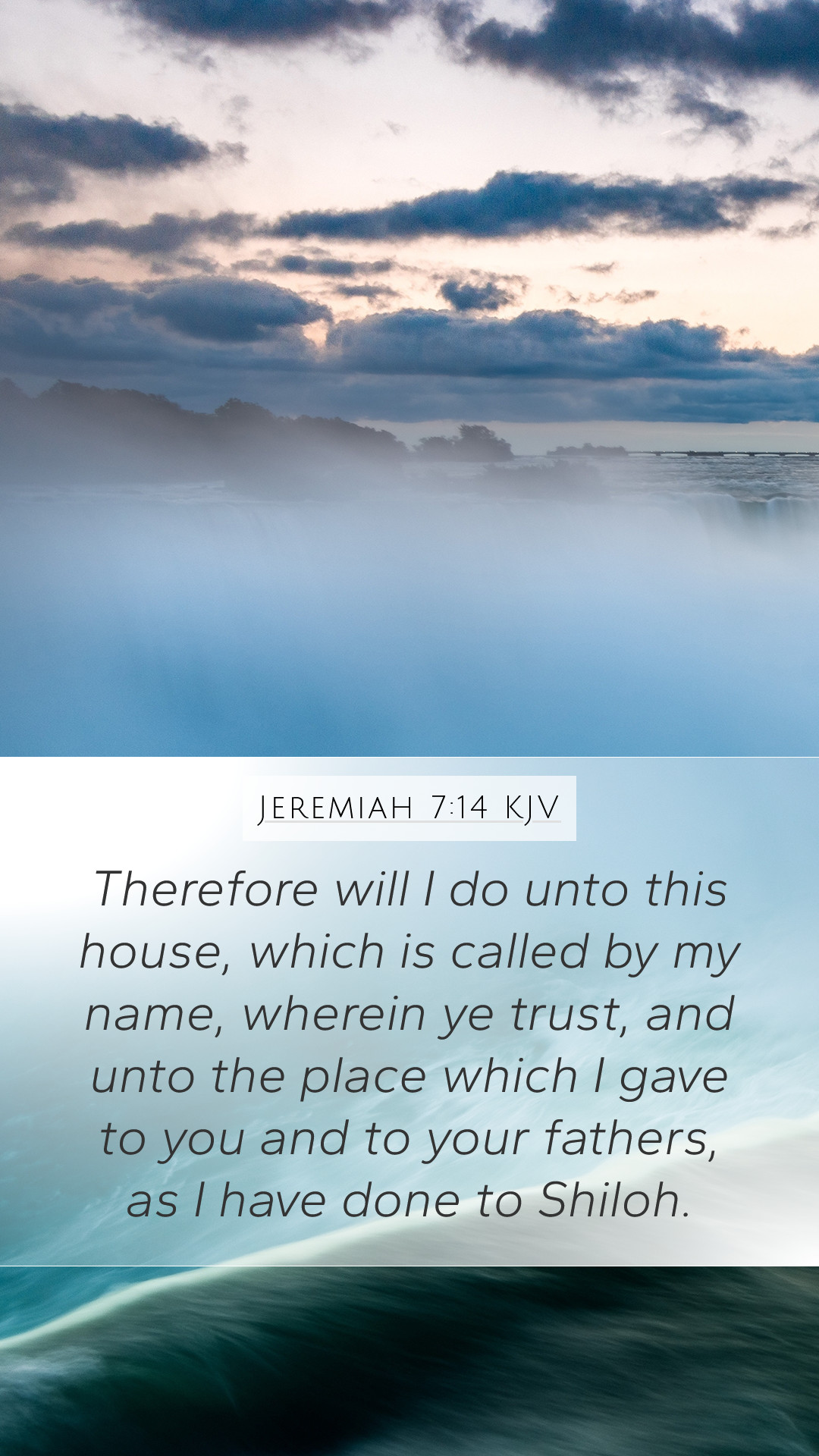Understanding Jeremiah 7:14
Bible Verse: Jeremiah 7:14 - "Therefore will I do unto this house, which is called by my name, wherein ye trust, and unto the place which I gave to you and to your fathers, as I have done to Shiloh."
Meaning of Jeremiah 7:14
This verse expresses God's warning to the people of Judah regarding their misplaced trust in the Temple as a protective sanctuary. The implications of the verse are profound, highlighting themes of judgment, the sanctity of God’s name, and the consequences of idolatry. Through a synthesis of insights from public domain commentaries, we gain a comprehensive understanding of its significance.
Historical Context
Jeremiah, a prophet during a time of great turmoil in Judah, relayed God's messages to warn His people about impending judgment due to their unfaithfulness. This verse illustrates God's declaration that the Temple, revered and misinterpreted as an infallible refuge, would not shield them from the consequences of their sins.
Commentary Insights
-
Matthew Henry’s Commentary: Henry emphasizes that the people of Judah had confidence in the Temple, thinking that its mere presence ensured their security. He notes that God’s promise of protection was conditional upon their faithfulness and righteousness. Henry suggests that this verse serves as a stark reminder that physical places of worship do not guarantee divine protection without corresponding faith and obedience.
-
Albert Barnes’ Notes: Barnes interprets this verse as a declaration of divine judgment. He highlights that God compares the fate of the Temple to Shiloh, where the Ark of the Covenant once resided, but which ultimately fell because of the sinfulness of its people. Barnes stresses the lesson that reliance on sacred locations without genuine faith in God is futile.
-
Adam Clarke’s Commentary: Clarke connects this warning to the historical fate of Shiloh, indicating that just as Shiloh faced desolation due to the inhabitants' disobedience, so too would Jerusalem face destruction for similar reasons. He cautions that the Temple itself is not a talisman against God's judgment; what matters is the heart and actions of its people.
Theological Implications
Divine Authority: The verse underscores God’s sovereign authority over sacred places. He has the right to remove His presence from any location, including the Temple, as a manifestation of His displeasure.
Faith and Obedience: It serves as a reflection on the necessity of true commitment to God’s ways, rather than a superficial connection to His temple. True faith is demonstrated through actions and not merely through a physical affiliation or location.
Application to Modern Believers
For contemporary followers, Jeremiah 7:14 serves as a cautionary tale about valuing church buildings or traditions over personal and communal righteousness. It urges believers to reflect on their spiritual lives and relationship with God, emphasizing the importance of authentic faith.
Cross References
- 1 Samuel 4:21-22 - The fate of Shiloh and its significance relating to God's presence.
- Jeremiah 26:6 - A warning similar in nature regarding the temple and the impending judgment.
- Matthew 23:37 - Jesus' lament over Jerusalem and its rejection of God’s message.
Conclusion
Jeremiah 7:14 is a potent reminder of the transient nature of human-made sanctuaries in the face of divine principles. True security is found not in physical locations but in a faithful relationship with God, characterized by obedience and authenticity. As we interpret this verse, it encapsulates critical lessons in spiritual reflection, making it relevant for both individual and communal faith journeys.
Bible Study Insights
This verse can prompt discussions in Bible study groups, providing rich opportunities for exploring themes of judgment, the consequences of misplaced trust, and the importance of living faithfully. It invites deeper exploration of how to apply these teachings in daily life and in community worship settings.


